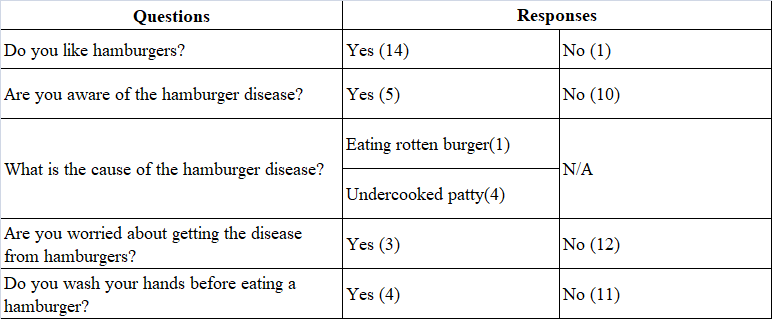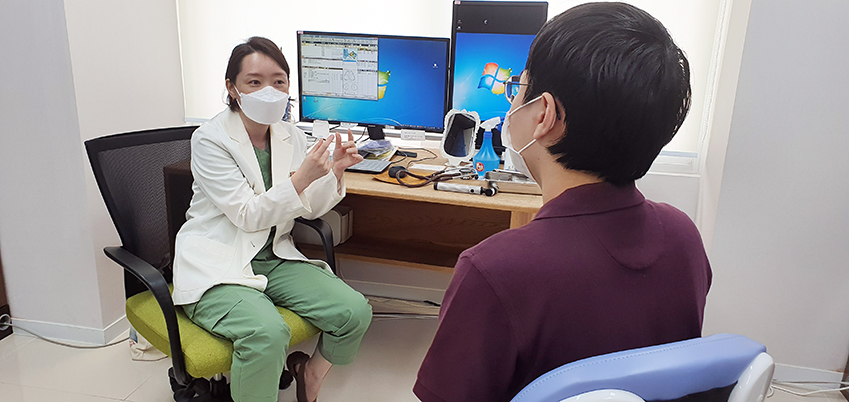Are you familiar with Hemolytic-uremic Syndrome (HUS)? It is better known as the ‘hamburger disease,’ which is a rare disease that severely damages the kidney and other organs. A four-year-old girl in South Korea was diagnosed with HUS in September 2016, with her mother claiming that she contracted HUS after eating a hamburger from McDonald’s which had an undercooked patty.
It seems that HUS is very much a threat to public safety and considering the recent outbreak of HUS among many children at a kindergarten in Ansan, the public concern regarding foodborne illnesses has become a major issue. However, the fact that hamburger patties are accused as the sole culprit of this disease is unfair and inaccurate. In order to better protect ourselves, it is essential to understand the causes of the so-called ‘hamburger disease.’
I carried out a survey with 15 high school students attending Saint Paul Preparatory School and Seoul High School. Students are considered as the major consumers of hamburgers, so the survey was a great opportunity to find out about the reality of public awareness regarding this issue.


The results showed that more than half of the students were unfamiliar of HUS and many students did not wash their hands before eating a hamburger. Realizing this lack of awareness, I researched for further information.

Since children have a weaker immune system compared to adults, they are known to be more susceptible to HUS. In order to get a better understanding of HUS, I carried out an interview with Dr. Young Shin Lim, a member of The Korean Society of Pediatric Gastroenterology, Hepatology and Nutrition. According to Dr. Lim, “The development of HUS is not only attributable to hamburger patties but also to vegetables. The primary cause of HUS is E. Coli bacteria, which is transferred from infected animal's internal organs and unsanitary knives during the process of mincing meat. But as the food production process became highly mechanized and hygiene standards increased in recent years, meats are processed in sterilized conditions, making them much less likely to cause HUS,”

On the other hand, Dr. Lim cautiously said that “Now vegetables and fruits may be more exposed to the risk of food contamination as consumption of organic produce is increasing.” People often believe that organic farm produce is healthy and safe to consume without proper rinsing as they are natural. However, it is extremely important to wash these produces thoroughly because “manures used in organic farming are often derived from animal by-products, which is a potential threat to food contamination leading to HUS.”
To prevent HUS, she recommended that we must “wash vegetables and fruits as cleanly as possible and cook meat thoroughly when preparing food at home.” She further advised to have cooked vegetables instead of salads when eating at a restaurant, especially for children. Similarly, if you are served an undercooked patty in a restaurant, you must send it back for further cooking. Dr. Lim also advised that it is wise to “avoid any unpasteurized milk product or juices, and always wash your hands with soap before you eat food and after using the toilet.”
Ever since the incident with hamburgers, HUS has been under intense public spotlight. However, calling HUS the ‘hamburger disease’ is misleading and can cause a false sense of security. This misnomer may assure people that they are safe as long as they stay away from hamburgers. People must be aware of the fact that risk of HUS exists with any unsanitary food condition of meats, vegetables, milk products, fruits, and untreated water.
I hope this article will help burger-lovers enjoy their meal without worrying about HUS. Although one should not be overly concerned about HUS, it is certainly advised to be safe from this disease by following Dr. Lim’s advice.

Donghyun Kim
Sophomore (Grade 10)
Saint Paul Preparatory Seoul

